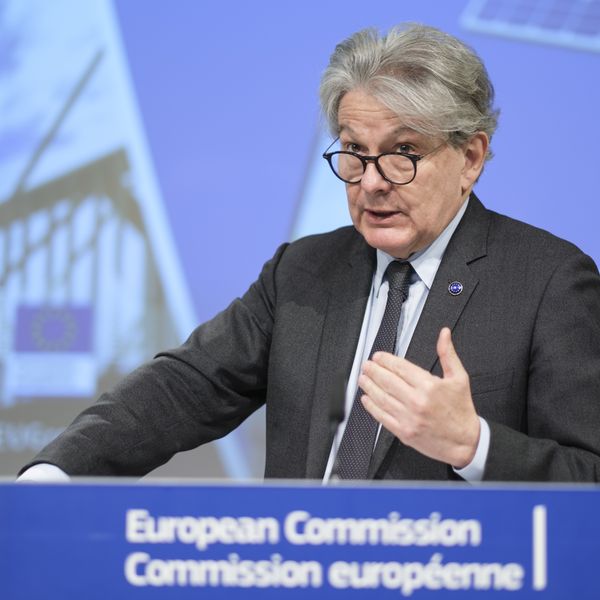How about information on illegal drugs? Or gay sex, or abortion? Your call may be recorded for training and monitoring purposes. How about obscene and tasteless material? Would you like to see that? Speak up, Linda can't hear you.
"The worst thing about the porn filter, though, is not that it accidentally blocks a lot of useful information but that it blocks information at all."
The government's filter, which comes into full effect this month after a year of lobbying, will block far more than dirty pictures. That was always the intention, and in recent weeks it has become clear that the mission creep of internet censorship is even creepier than campaigners had feared. In the name of protecting children from a rotten tide of raunchy videos, a terrifying precedent is being set for state control of the digital commons.
Pious arguments about protecting innocence are invariably marshalled in the service of public ignorance. When the first opt-in filtering began, it was discovered that non-pornographic "gay and lesbian" sites and "sex education" content would be blocked by BT. After an outcry, the company quickly changed the wording on its website, but it is not clear that more than the wording has been changed. The internet is a lifeline for young LGBT people looking for information and support - and parents are now able to stop them finding that support at the click of a mouse.
Sexual control and social control are usually co-occurring. Sites that were found to be inaccessible when the new filtering system was launched last year included in some cases helplines like Childline and the NSPCC, domestic violence and suicide prevention services - and the thought of what an unscrupulous parent or abusive spouse could do with the ability to block such sites is chilling. The head of TalkTalk, one of Britain's biggest internet providers, claimed that the internet has no "social or moral framework". Well, neither does a library. Nobody would dream of insisting a local book exchange deployed morality robots to protect children from discovering something their parents might not want them to see. Online, that's just what's happening, except that in this case, every person who uses the internet is being treated like a child.
Every argument we have heard from politicians in favour of this internet filter has been about pornography, and its harmful effect on young people, evidence of which, despite years of public pearl-clutching, remains scant. It is curious, then, that so many categories included in BT's list of blocked content appear to be neither pornographic nor directly related to young children.
The category of "obscene content", for instance, which is blocked even on the lowest setting of BT's opt-in filtering system, covers "sites with information about illegal manipulation of electronic devices [and] distribution of software" - in other words, filesharing and music downloads, debate over which has been going on in parliament for years. It looks as if that debate has just been bypassed entirely, by way of scare stories about five-year-olds and fisting videos. Whatever your opinion on downloading music and cartoons for free, doing so is neither obscene nor pornographic.
Cameron's porn filter looks less like an attempt to protect kids than a convenient way to block a lot of content the British government doesn't want its citizens to see, with no public consultation whatsoever.
The worst thing about the porn filter, though, is not that it accidentally blocks a lot of useful information but that it blocks information at all. With minimal argument, a Conservative-led government has given private firms permission to decide what websites we may and may not access. This sets a precedent for state censorship on an enormous scale - all outsourced to the private sector, of course, so that the coalition does not have to hold up its hands to direct responsibility for shutting down freedom of speech.
More worrying still is the inclusion of material relating to "extremism", however the state and its proxies are choosing to define that term. Bearing in mind that simple protest groups like tax justice organisation UK Uncut have been labelled extremist by some, there is every chance that the categories for what constitutes "inappropriate" online content will be conveniently broad - and there's always room to extend them. The public gets no say over what political content will now be blocked, just as we had no say over whether we wanted such content blocked at all.
Records of opt-in software will, furthermore, make it simpler for national and international surveillance programmes to track who is looking at what sort of website. Just because they can doesn't mean they will, of course, but seven months of revelations about the extent of data capturing by GCHQ and the NSA - including the collection of information on the porn habits of political actors in order to discredit them - does make for reasonable suspicion. Do you still feel comfortable about ticking that box that says you want to see "obscene and tasteless content"? Are you sure?
The question of who should be allowed to access what information has become a defining cultural debate of the age. Following the Edward Snowden revelations, that question will be asked of all of us in 2014, and we must understand attempts by any state to place blocks and filters on online content in that context.
Policies designed for controlling adults have long been implemented in the name of protecting children, but if we really want to give children their best chance, we can start by denying private companies and conservative politicians the power to determine the minutiae of what they may and may not know. Instant access to centuries of information and learning is a provision without peer in the history of human civilisation. For the sake of the generations to come, we must protect it.

